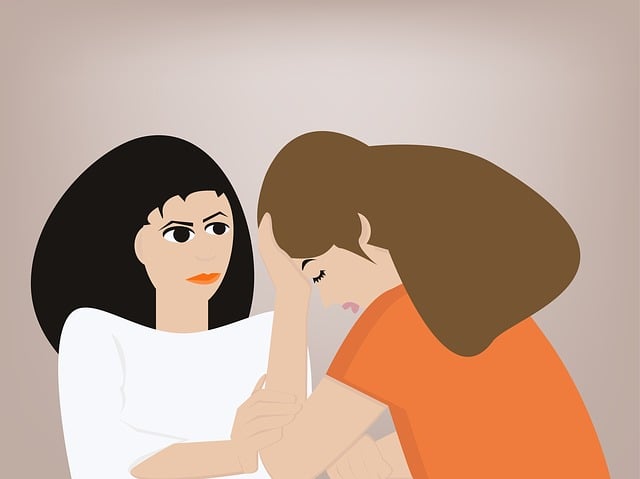In today's digital era, community outreach programs integrating online therapy are transforming mental health support for young children during critical brain development periods. Overcoming traditional therapy barriers like accessibility and stigma, these innovative solutions offer home-based sessions accessible to all, promoting resilience and preventing caregiver burnout. Tailored strategies targeting working parents' needs, coupled with interactive platforms teaching life skills, engage families and reduce mental health stigmas. Strong partnerships with local communities and stakeholders amplify impact, normalizing open conversations about mental wellness. Evaluating both quantitative and qualitative outcomes ensures program effectiveness while extending reach through podcast series and stigma reduction initiatives for holistic well-being of young children.
Community outreach programs play a pivotal role in addressing the mental health needs of young children, especially those underserved by traditional healthcare. This article explores the growing importance of these initiatives, particularly in the context of online therapy, which expands access to care. We delve into designing effective strategies, building partnerships with local communities, and measuring success through impact evaluation. By understanding these key components, we can ensure that Therapy for Young Children Online reaches those who need it most.
- Understanding the Need for Community Outreach Programs in Young Children's Mental Health
- Benefits of Online Therapy: Expanding Access to Care for Young Children
- Designing Effective Community Outreach Strategies for Online Therapy Services
- Building Partnerships: Collaborating with Local Communities and Stakeholders
- Measuring Success: Evaluating the Impact of Community Outreach Programs on Young Children's Well-being
Understanding the Need for Community Outreach Programs in Young Children's Mental Health

In today’s fast-paced world, community outreach programs play a pivotal role in addressing the mental health needs of young children. Early childhood is a critical period for brain development, and various external factors can impact a child’s emotional well-being. Traditional therapy models often fall short when reaching underserved communities due to barriers like transportation, accessibility, and stigma. Therefore, implementing innovative solutions such as online therapy and compassionate cultivation practices becomes essential.
By integrating digital tools, community outreach programs can offer therapy for young children from the comfort of their homes, overcoming geographical constraints. This shift not only expands access but also encourages resilience building and burnout prevention among both children and their caregivers. Online platforms provide a safe space for vulnerable populations to seek support without the added pressures of physical interactions, fostering an environment conducive to mental health development.
Benefits of Online Therapy: Expanding Access to Care for Young Children

Online therapy has revolutionized access to care for young children, offering a multitude of benefits that traditional in-person sessions may not. It provides a convenient and accessible platform, especially for families facing geographical barriers or those with limited mobility. This form of therapy allows parents and caregivers to participate actively, fostering engagement and enabling them to contribute to their child’s healing process. With online platforms, children can receive the necessary support from the comfort of their homes, promoting a sense of security and familiarity.
One significant advantage is the potential for widespread reach, as online therapy sessions can connect young individuals with qualified healthcare providers regardless of their location. This accessibility is crucial in ensuring that every child, regardless of socio-economic status or geographical location, has an equal opportunity to receive much-needed crisis intervention guidance and build essential life skills. Moreover, online platforms often include features that enhance interaction and engagement, contributing to improved outcomes, particularly in areas such as confidence boosting and cultural competency training for healthcare providers.
Designing Effective Community Outreach Strategies for Online Therapy Services

Designing effective community outreach strategies is essential to introduce and promote online therapy services, especially for young children. In today’s digital era, many families are seeking convenient and accessible mental health support. Therefore, tailoring outreach initiatives to connect with parents and caregivers is a game-changer. Start by understanding the unique needs of the community; for instance, focusing on the challenges faced by working parents who might appreciate after-school or weekend therapy sessions.
Implementing social skills training, stress management workshops, and self-care practices can be powerful tools to engage families. These initiatives can be delivered through interactive online platforms, ensuring a comfortable and accessible environment. By offering educational resources and support groups, you create a supportive network that encourages young children and their families to embrace online therapy as a valuable resource for their mental well-being.
Building Partnerships: Collaborating with Local Communities and Stakeholders

Building strong partnerships with local communities and stakeholders is a cornerstone for successful implementation of community outreach programs, especially when focusing on mental health initiatives like therapy for young children. By collaborating closely with schools, healthcare providers, and community organizations, programs can ensure their services align with existing support systems and cultural norms. This approach fosters trust and encourages participation, making it easier to reach children and families who might otherwise be hesitant to access online therapy due to concerns about privacy or stigma associated with mental illness.
Partnerships also enable the integration of diverse resources, including volunteer networks, local business sponsorships, and expert knowledge from mental wellness podcast series production teams. This collaborative approach not only amplifies the impact of outreach programs but also promotes mental illness stigma reduction efforts by normalizing conversations around mental health and encouraging self-care practices within communities. Through these partnerships, community members become empowered to take an active role in supporting their peers’ mental wellness, creating a network of care that extends far beyond individual therapy sessions.
Measuring Success: Evaluating the Impact of Community Outreach Programs on Young Children's Well-being

Measuring success is a critical aspect of evaluating the impact of community outreach programs on young children’s well-being. The effectiveness of these initiatives can be assessed through various quantitative and qualitative methods, such as surveys, interviews, and observations. By tracking key performance indicators (KPIs) like participation rates, parental engagement, and improvements in behavioral and emotional outcomes, organizations can gain valuable insights into the program’s success. Online therapy sessions, for instance, can measure the reach and accessibility of services through metrics like session completion rates and client satisfaction scores. This data-driven approach ensures that resources are allocated efficiently and that the programs truly resonate with the target audience.
Moreover, evaluating community outreach programs should extend beyond immediate outcomes to consider long-term impacts on mental wellness. Regular follow-ups with families and children can reveal sustained behavioral changes, enhanced social skills, and improved conflict resolution techniques. The production of a Mental Wellness Podcast Series or engaging in Mental Illness Stigma Reduction Efforts can further amplify the program’s reach and foster a supportive environment for young individuals to thrive. Such initiatives contribute to a holistic understanding of the program’s effectiveness, ensuring that every interaction positively contributes to the well-being of young children.
Implementing community outreach programs for young children’s mental health through online therapy services offers a promising pathway towards expanding access to care. By designing effective strategies, building strong partnerships, and measuring success through evaluation, we can ensure these programs positively impact the well-being of young minds. This holistic approach leverages technology and community collaboration to bridge gaps in mental health support for vulnerable populations. Ultimately, investing in community outreach strengthens the fabric of our society, fostering healthier and more resilient young children equipped with the tools for lifelong well-being.










